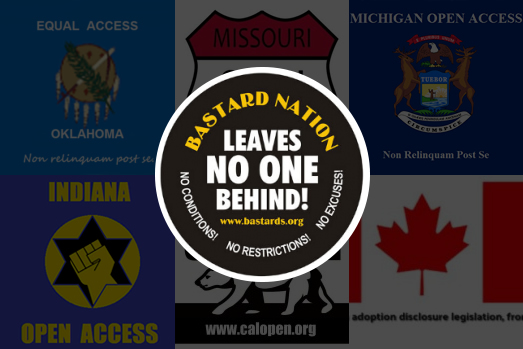III. A History of Adoption and Sealed Records in Canada
Adoption in Canada is similar to the United States in that it is a matter of provincial or territorial control. This means that adoptees in Canada have varying degrees of access to their information depending on the province or territory in which they were adopted.
Most provinces and territories have laws originally based in British Common Law, but Quebec’s law is based on the civil code of France. Before there were specific adoption-related laws in Canada, adoption generally fell under contract law. One reason given for specific adoption legislation was to curb the black market in baby-selling.
Early on, Canadian adoption laws closely followed those in Britain. For example, Ontario brought in an Adoption Act in 1921 and later sealed records in 1927 (a year later than Britain). The reason cited at the time for sealing records was to protect the children from the then-powerful stigma of illegitimacy. Canada has not followed the lead of Britain in giving adult adoptees access to their records.
One historical practice in Canadian adoption has now been decried as cultural genocide. The so-called “Sixties Scoop” involved the removal and adoption of many Native children across Canada. Many were adopted into non-Native homes in Canada and internationally.
Until the 1970s most unmarried mothers in Canada relinquished their children for adoption under serious social pressure. Since that time, adoption disclosure laws have gradually increased the amount of information available to adoptees.
Although most government-initiated studies on adoption disclosure conclude that records should be opened, laws generally lag behind. The current status of records access for adult adoptees in Canada is varied. Some provinces offer very little information, some have mutual disclosure registries, some have active searches available, and still others give adult adoptees access to their information subject to potential vetoes.




